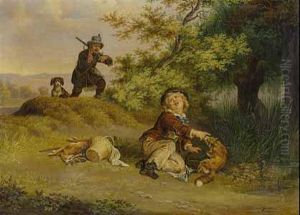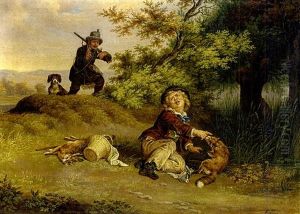Karl Ens Paintings
Karl Ens is not widely recognized as an individual artist but rather associated with the porcelain manufacturing company, Volkstedt Porcelain Factory, located in Rudolstadt, Thuringia, Germany. The Ens name became synonymous with high-quality porcelain figures, particularly birds and flowers, which were the company's specialty. The factory was originally founded by Triebner, Ens & Eckert in 1894 after a split from another company. It is important to note that Karl Ens was one of the partners in this enterprise, not an artist whose primary identity was in creating art.
The Volkstedt Porcelain Factory gained a reputation for its exquisite porcelain, characterized by its attention to detail and the vibrancy of its colors. After the original partnership dissolved, the Ens family took over the factory in the early 20th century, and it became known as the Karl Ens Porcelain Factory. The Ens name continued to be associated with quality porcelain production throughout the 20th century.
Despite the association with Karl Ens, there is a scarcity of biographical information about his personal life, including the exact dates of his birth and death. The history of the porcelain factory is better documented, surviving two World Wars and the partition of Germany. After the reunification of Germany, the factory was privatized and continues to produce porcelain under the Ens name.
The legacy of Karl Ens is thus more accurately reflected in the collectible porcelain figures that are sought after by collectors worldwide. These figures, particularly the birds, are renowned for their lifelike appearance and fine craftsmanship. The Karl Ens Porcelain Factory remains a testament to the enduring quality of German porcelain artistry.

